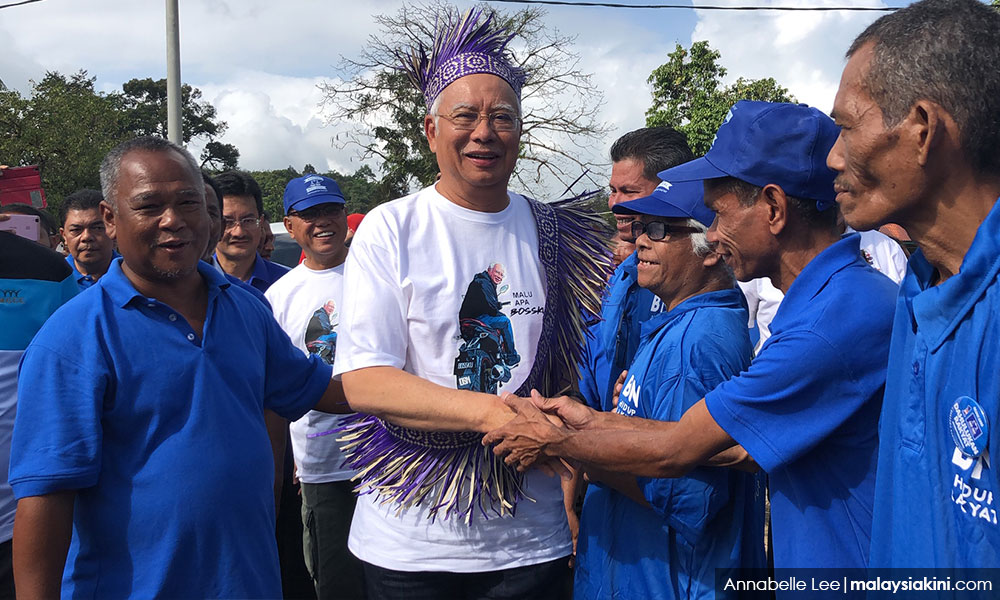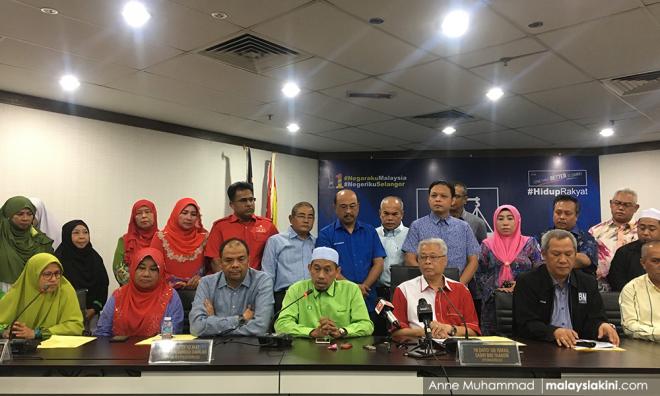
Published by Malay Mail & The Malaysian Insight, image from Free Malaysia Today.
THERE is a debate about the extent to which Malaysia should be outspoken about troublesome issues that are not its direct concern – such as the persecution of Uighurs in China – and if it has enough resources to stand to the potential pressure such comments would entail.
THERE is a debate about the extent to which Malaysia should be outspoken about troublesome issues that are not its direct concern – such as the persecution of Uighurs in China – and if it has enough resources to stand to the potential pressure such comments would entail.
The disturbing updates from Xinjiang in China, Rakhine in Myanmar, Cox’s Bazar in Bangladesh and elsewhere where minorities’ rights are concerned keep coming in on a daily basis. Most recently, the International Paralympic Committee stripped Malaysia of its hosting right for the world para swimming championships to be held in July – a consequence of standing its moral ground on banning Israeli athletes from entering Malaysia.
Should the headlines bring another matter of this kind that demands a reaction, what would Malaysia say?
Criteria of support
The discourse in Malaysia on supporting oppressed minorities is reminiscent of patchwork, with fragmented statements on certain cases and silence on the others.
For instance, condemnation has been made on two main human rights issues of current international concern – re-education camps for Uighurs in the Xinjiang province of China and the “textbook example” of ethnic cleansing in Myanmar that targets de facto stateless Rohingya.
There are several issues that beg for certainty before any statements are made on this sort of issue.
Firstly, what is the premise of the position? Does Malaysia generally care about oppressed minorities or only about particular ones? There should be clarity if this support is inspired by the sense of religious brotherhood – Muslim for both cases mentioned above – or if it extends to anyone mistreated by the authorities despite their religious affiliation.
For example, would it involve itself in the intra-Muslim schism, like the Sunni-Shia divide or the persecution of more marginalised minorities, like the Ahmadiyya (which Malaysia has its own story with)?
Reacting to cases when only Muslim rights are being infringed would likely place Malaysia on one side of a banal civilizational clash, where decisions are made based on cultural-religious divides, without putting actual human beings at the centre of policy.
Secondly, does geography put any limitations on the areas Malaysia shows interest in? Does it care only about events in its region, let’s say within East Asia, or should the chaos in the Middle East be closely watched too?
Sensitive hearts in Malaysia watched warily the tribulations of Yazidis under the Islamic State, praising Nadia Murad who received the Nobel Peace Prize last year. However, Malaysia’s major concerns about the turbulence as a result of civil war in Syria, Yemen and occupation of parts of Syria and Iraq by the Islamic State were reduced to humanitarian help.
The third question concerns continuity and consistency of positions throughout different administrations. In October 2018, under the new Pakatan Harapan government, 11 Uighurs were released and sent to Turkey for resettlement, instead of being extradited to China as per what the latter demanded.
On the contrary, during the previous administration, several batches of Uighurs were extradited to China upon its request. There were 6 men secretly deported straight from detention in December 2012, while in 2017 then Malaysian Deputy Prime Minister Zahid Hamidi confirmed the deportation of 29 Uighur “militants” back to China.
What exactly determines the government’s decision to support or not to support the minorities? Is it willingness to adhere to some solid principles or volatile political considerations?
When it was insincere
For quite a long while, every government in Asean, realising that it inhabits a house with glass walls, gladly adhered to the principle of non-interference – no one dares to throw stones risking to get some in response.
The new migration wave of Rohingya from Myanmar resulted in the Andaman Sea Crisis in 2015, bringing the matter to international scrutiny. Then Prime Minister Najib Razak made some sluggish comments at first, and a few more later on, leading some media to conclude that it was his decisive leap that shifted global opinion against Myanmar.
Najib even participated in the rally in support of Rohingya in December 2016, calling for a stop to the “denial of basic human rights to fellow human beings”, while at the same time labeling the persecution as “an insult to Islam”.
Why was it not compelling? Too many events occurred around the same time that calls sincerity into question. At that point, 1MDB was already under scrutiny for suspicious transactions, making it an important moment to start regaining constituencies’ trust in anticipation of GE14 scheduled for 2018.
Besides, while Najib was posing as a justice fighter at Asean and OIC, and primarily before Umno’s electorate, Rohingya refugees were widely disregarded inside of Malaysia itself, where they make up a significant share of the 150,000 asylum seekers officially registered by the UNHCR.
For example, the RM3.5 million hospital Malaysia built for refugees in Cox’s Bazar was a widely advertised humanitarian effort. However, inside Malaysia, where some displaced people remain unregistered due to the long proceedings in UNHCR and become easy prey for extortion, Rohingya refugees have problems accessing such basic things as child delivery services, due to the absence of political will.
It is also worth remembering the 2012 case of Saudi Arabian blogger Hamza Kashgari who was handed over to the Saudi police, who then took him back to Saudi Arabia to face charges for blasphemy. He did not appear to the authorities as “a human being” who is facing capital punishment for an offence that in Malaysia would not be seen as that grave. The need to cater to the Saudi request proved to be of more value at the time. It can be said Malaysia, like Turkey that it often looks up to, had its own Khashoggi, who could have been protected. Luckily, his case did not have the same bloody end.
Is the tree worth barking at?
The bottom line is that there should be a conclusion regarding when and why Malaysia speaks out about matters that must be brought up to regional or global attention.
If it is to galvanise the support of local Muslims for the incumbent government, then it must be extended to all serious cases when rights of people who happen to be Muslim are involved.
If it is to fulfill a moral obligation to support the basic rights of human beings irrespective of their religious affiliation, then the number of cases soars exponentially to whatever is of concern to human rights organisations.
If Malaysia is to be a regional leader, which it is well-placed to do, or pose as a moral authority among its Muslim partners under the umbrella of the Organisation of Islamic Cooperation (OIC), this matter should be given a little bit more thought.
Besides consistency of its international or regional stance and weighing on how not to bring down unnecessary anger from such strong players as China, there must be preparedness to fix as much as possible at home.
Every issue held against someone abroad, would automatically invite a volley of stones at Malaysia’s glass walls, as the recent issue with banning Israeli para-athletes showed. Malaysia spoke of justice for occupied Palestine and faced the usual accusations of “rabid anti-Semitism” from abroad and likening of ketuanan Melayu policies to the Zionist practices in Israel.
Unless the grounds for providing a moral example in ASEAN and the Muslim world are well-thought-out, Malaysia risks ending up looking like a clamorous populist. – January 28, 2019.
Julia Roknifard is Director of Foreign Policy at EMIR Research, an independent think-tank focused on strategic policy recommendations based upon rigorous research.

